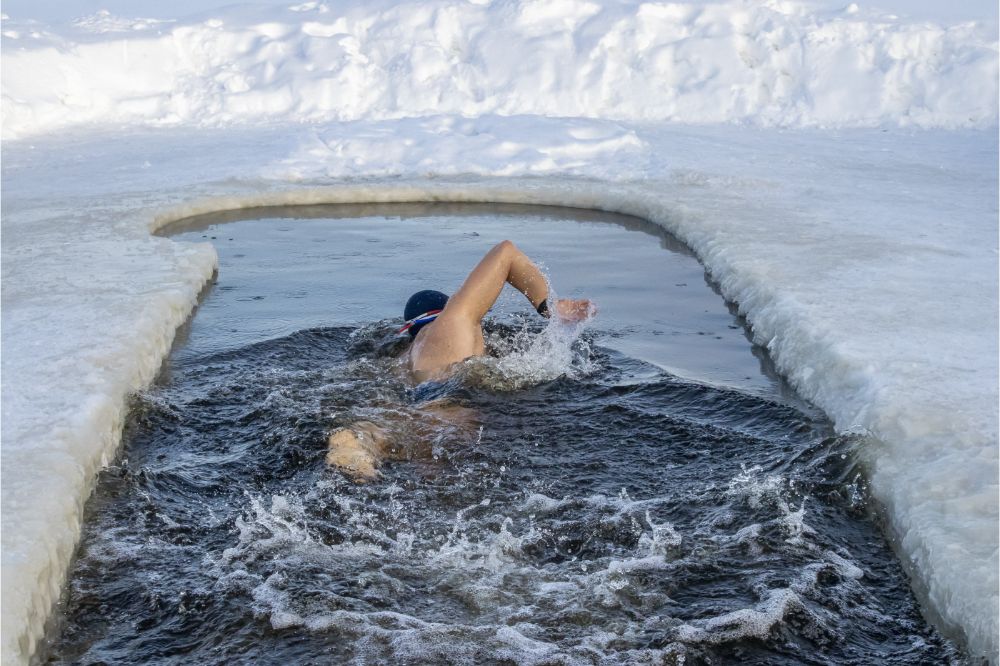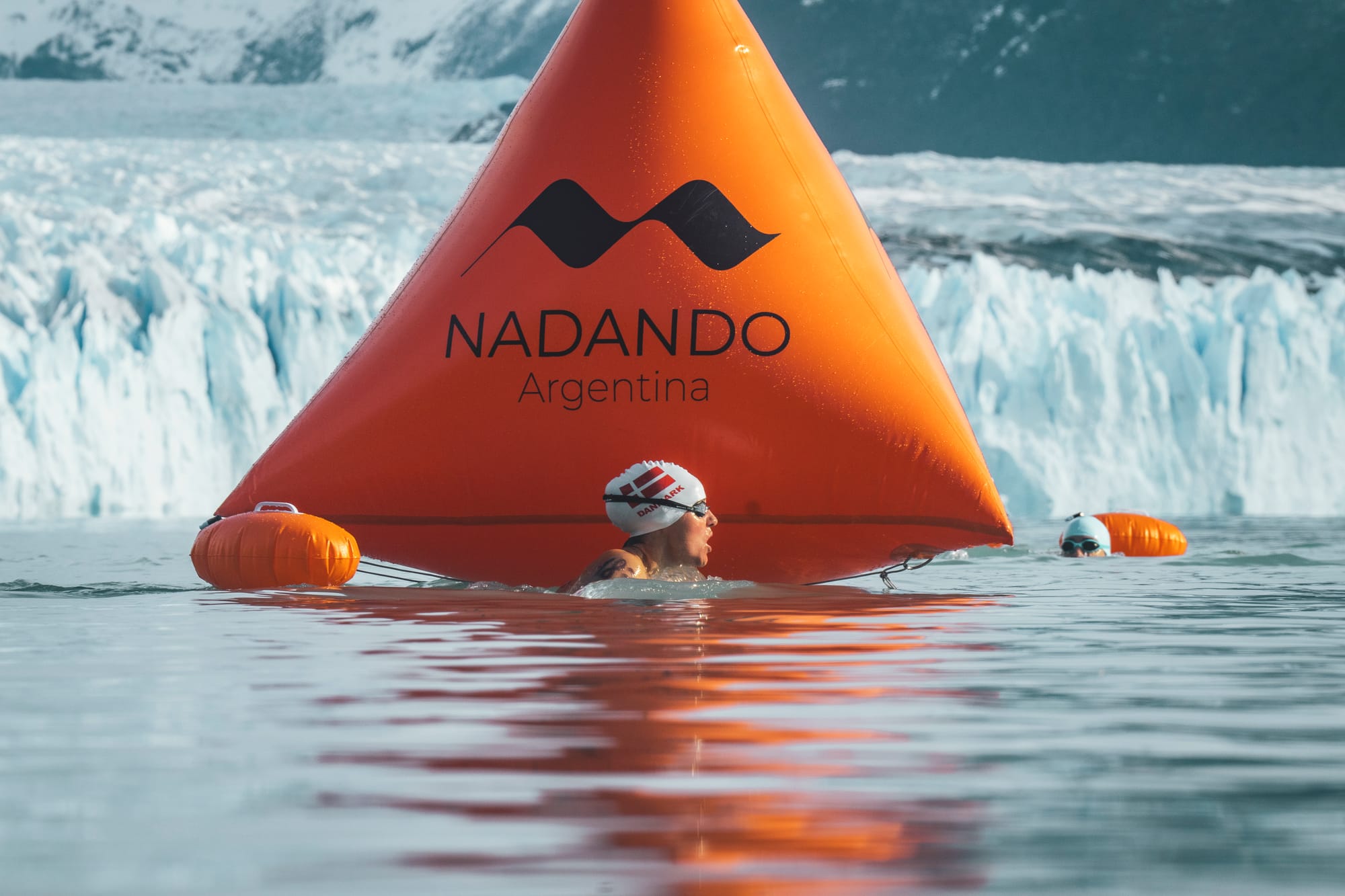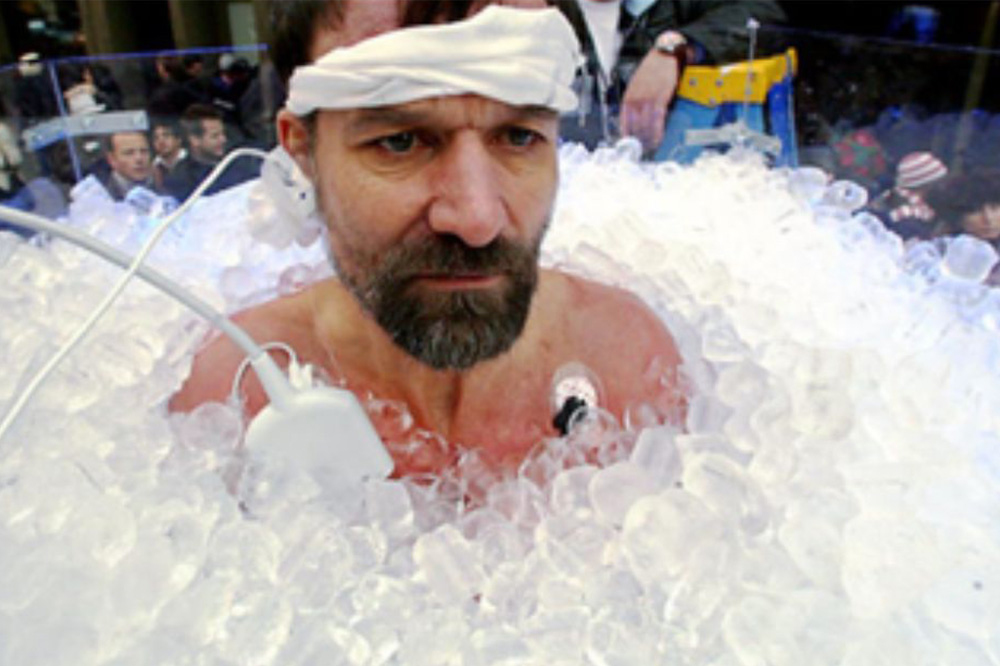More and more people are exploring the fun and health benefits of cold water swimming. If you are interested, you may be wondering whether ice swimming or winter swimming is better for you, or perhaps you aren’t sure of the differences. Let’s explore ice swimming vs winter swimming, so you can choose which type of cold water swimming is best for you
What is Ice Swimming?
As the name implies, Ice swimming is done in extremely cold water. Traditionally, ice swimming has been performed in areas where freshwater has frozen over, and the top layer of ice is cut and removed to expose an area of water for swimming. Formal ice swimming guidelines call for the water to be at most 5°C or 41°F.
What is Winter Swimming?
As you might expect, winter swimming is swimming in cold weather or in winter when the air temperature is frigid. Winter swimming does not always have specific guidelines about the temperature of the water or the weather. Still, winter swimming is usually done in pretty chilly temperatures, when the water is extremely cold..
That being said, if you swim all year around in a lake that is warm during summer time, cooler during fall and icy cold during winter, your regular swim becomes a winter swim during fall and then an ice swim in winter when temperatures are at their lowest. But that is just a question of definition and shouldn’t concern you much.
Formal winter swimming and ice swimming events usually require that swimmers wear only regular bathing suits and prohibit wetsuits and other protective garments.
Is Ice Swimming or Winter Swimming Good for You?
Swimming in cold water has a vast range of health benefits, no matter what time of year it is. Swimming in cold water has been proven to:
Improve Heart Health
Coldwater swimming improves blood pressure and lipid profiles among healthy people without cardiovascular risk factors.
Improve Stress Levels
Coldwater stresses the body, releasing hormones that appear to improve our ability to withstand the stresses of daily life.
Improves Insulin Sensitivity
Coldwater swimming improves insulin metabolism and sensitivity, especially among female swimmers.
Reduce Pain
Among the hormones released in cold water, norepinephrine appears to reduce pain perception, and habitual exposure reduces chronic pain sensations over time.
Improve Mood and Mental State
Regular cold water swimming appears to alleviate low mood and depression among surveyed people
Improve Immune Response
A growing body of evidence indicates that cold water swimmers are more resistant to common illnesses and infections.
Studies show that the benefits of cold water swimming are maximized over time as the body becomes acclimatized to cold water. However, even brief full-body cold water immersion without prolonged swimming carries many of these same benefits.
As a rule, cold water health benefits are more correlated to the water temperature than the time of year. Most people gain the greatest benefits with the fewest health risks at water temperatures of about 10°C/50°F.
Is Ice Swimming or Winter Swimming Better?
Both ice swimming and winter swimming have health benefits and risks. Here are some things to consider to determine which is best for you.
Ice Swimming Pros
- While ice swimming is usually done in open water, ice swimming can be performed in any body of cold water, any time of year. Some gyms and health facilities have access to extremely cold (5°C/41°F) water for swimming or simply sitting in cold water.
- Some of the most powerful pain-relieving and mood-altering benefits of cold water swimming are gained at extremely low ice swimming temperatures
Ice Swimming Cons
Ice swimming carries some health risks, especially for people with underlying health conditions. Therefore, it is imperative to start at warmer water temperatures and work your way down over time, paying attention to how your body feels and gradually increasing tolerance.
Most of the health benefits of cold water swimming can be gained at higher (but still cold) temperatures of 10°C/50°F, and some benefits (like improved endurance and muscle recovery) are optimized at this temperature instead of ice-cold water
Winter Swimming Pros
- While the weather may be colder, simple winter swimming may have warmer water than ice swimming and fewer health risks.
- Winter swimming is almost always done in open water and often with a group of people as a fun and healthy recreational activity.
- Winter swimming gives you most of the benefits of cold water swimming, with fewer health risks.
Winter Swimming Cons
- After swimming in cold water, it is essential to get completely dry and warm within 10 minutes. Due to afterdrop, the body’s core temperature decreases after you leave the water, so cold outside weather can exacerbate this risk.
- Winter swimming can only be done in winter or in year-round cold climates.
For most people, it is best to begin with cold water immersion and exposure, then work your way up to winter swimming, then, if you want, continue to progress to ice swimming. In other words, it does not have to be either/or. Instead, the point is to get the excellent health benefits of swimming in cold water, regardless of the season. Winter and ice swimming are two stages on the same journey, rather than competing alternatives. Choose the place and style of swimming that suits you best, and explore gradually swimming in colder and colder water.
Conclusion
Ice swimming and winter swimming are both increasingly popular activities, either for the robust health and mood benefits or simply as a fun recreational activity. Whichever you choose, you will find a community of enthusiasts who will share your enjoyment and celebrate your progress with you.
Disclaimer: You should see a doctor prior to starting with cold training and research the risks involved.











Discussion